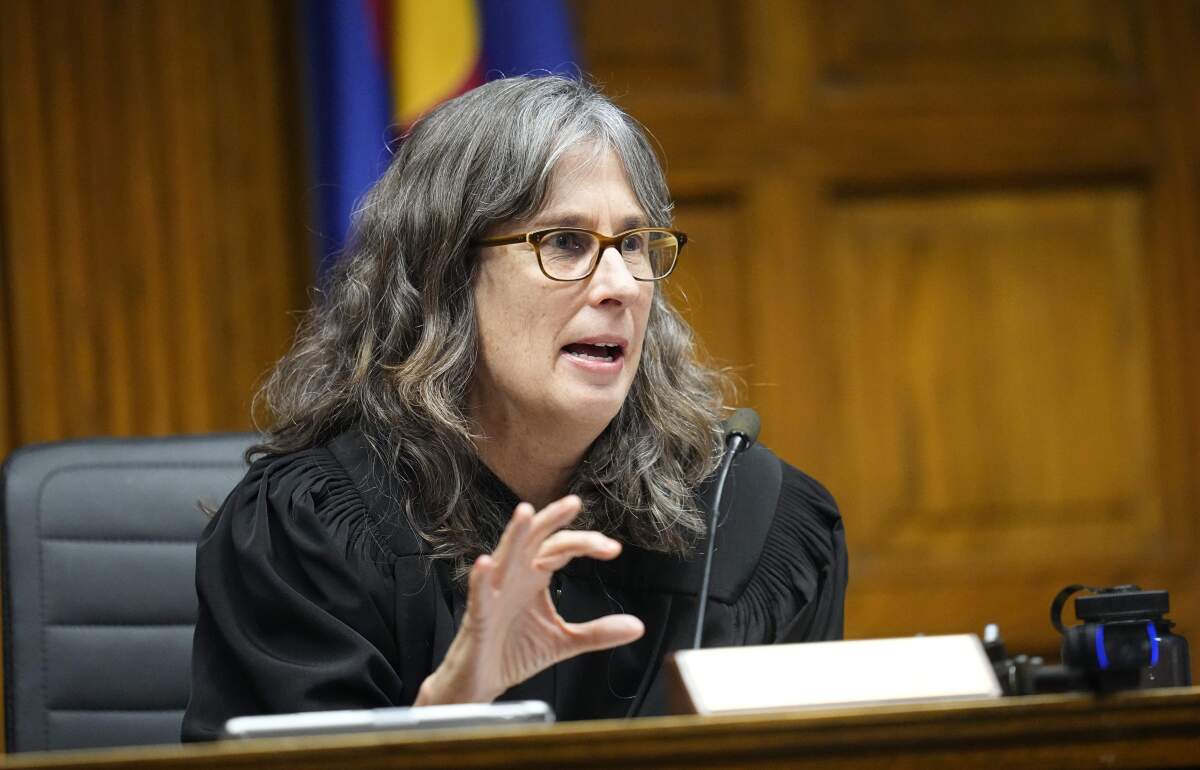Colorado judge keeps Trump on ballot, rejecting challenge under Constitution’s insurrection clause

DENVER — A Colorado judge has found that former President Trump engaged in insurrection during the Jan. 6, 2021, attack on the U.S. Capitol but rejected an effort to keep him off the state’s primary ballot because it’s unclear whether a Civil War-era constitutional amendment barring insurrectionists from public office applies to the presidency.
The lawsuit, brought by a left-leaning group on behalf of a group of Republican and independent Colorado voters, contended that Trump’s actions related to the attack ran afoul of a clause in the 14th Amendment that prevents anyone from holding office who “engaged in insurrection or rebellion” against the Constitution.
The decision by District Judge Sarah B. Wallace on Friday is the third ruling in a little over a week against lawsuits seeking to knock Trump off the ballot by citing Section 3 of the amendment.
The Minnesota Supreme Court this month said Trump could remain on the primary ballot because political parties have sole choice over who appears, while a Michigan judge ruled that Congress is the proper forum for deciding whether Section 3 applies to Trump.
In her decision, Wallace said she found that Trump did in fact “engage in insurrection” on Jan. 6 and rejected his attorneys’ arguments that he was simply engaging in free speech.
Normally, that would be enough to disqualify him under Section 3, she said, but she couldn’t do so for a presidential candidate.
Section 3 does not specifically refer to the presidency, as it does members of the U.S. Senate or House of Representatives. Instead, the clause refers to “elector of President and Vice President,” along with civil and military offices.
“Part of the Court’s decision is its reluctance to embrace an interpretation which would disqualify a presidential candidate without a clear, unmistakable indication that such is the intent of Section Three,” the judge wrote.
More to Read
Get the L.A. Times Politics newsletter
Deeply reported insights into legislation, politics and policy from Sacramento, Washington and beyond. In your inbox three times per week.
You may occasionally receive promotional content from the Los Angeles Times.










